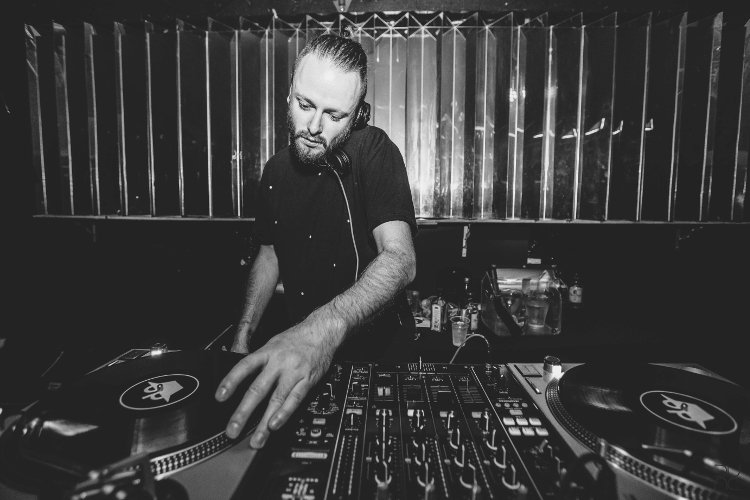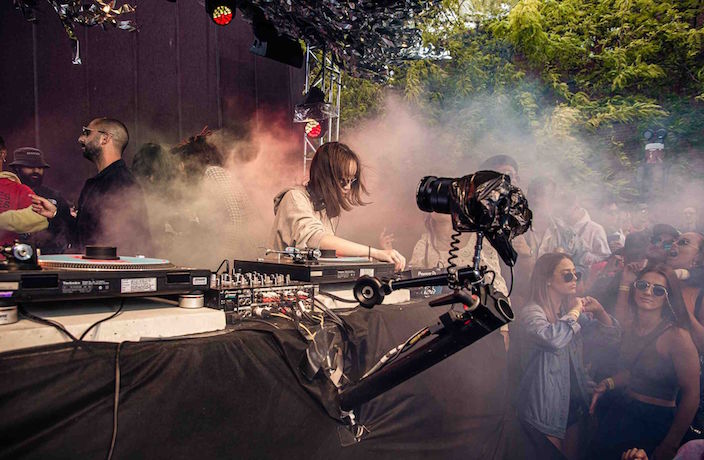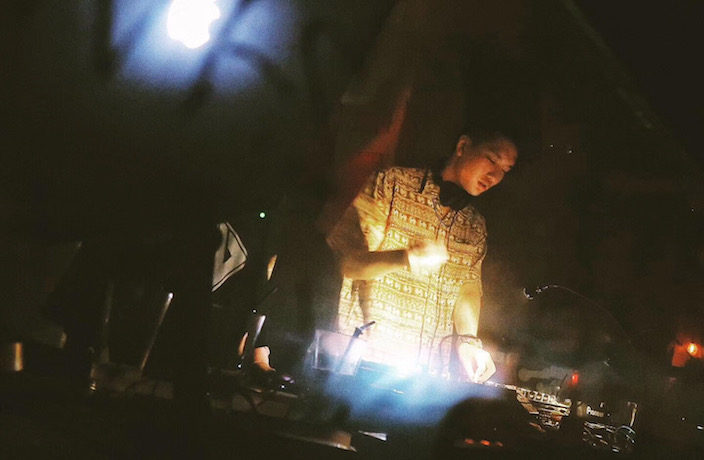I’ll let you in on a trade secret: The first five minutes of interviews with international DJs coming to Beijing are normally pretty boring.
This isn’t necessarily the artists’ fault. It’s just that because they are making such a long journey, it seems only fair to dedicate an ice-breaker to the old classic – ‘Have you been to China before?’ (Spoiler alert: Most haven’t and are uniformly excited about doing so. Those who have are uniformly positive about their shows, Chinese food and visiting the Great Wall.)
But it doesn’t always go down that way. Because not only is British producer Sam Binga pushing the boundaries of up-tempo electronic music at home, he’s also rewriting my interview openers.
“Yeah, I spent six months in Shanghai on an exchange [in 1999] when I was 18 or 19,” he reveals. “Our campus dormitory would lock the gate at 11 at night and not open it till 6. So if you went out, you went out all night. Just for jokes we used to go this club called Real Love on Hengshan Lu and it was absolute cheese – they had karaoke booths and played [Dutch Eurodance band] Vengaboys. Then we’d go bowling until 2am and onto some little weird techno club in a basement somewhere.”
The experience may not have been formative in a musical sense. But Binga’s stint in China left a lasting impact that few are aware of – his stage name, which is a combination of his birth name, Sam Simpson, and a China-inspired moniker he’d used while making breakbeat through the oo’s.
“In Shanghai, I used to buy this pineapple slushy drink that they called a baobinga,” he recalls, while admitting he’d thought the word meant ‘pineapple’ rather than ‘shaved ice’ (baobing). “When I did my first demo, way back in the day, I couldn’t think of a name for myself. So I was like ‘what’s that weird drink I had in Shanghai?’ – I’ll call myself Baobinga.
“I thought: ‘If I get signed I’ll think of a better name.’ But the label was like: ‘Love the tunes, we wanna sign them – and we think the name’s great.’ I was stuck with it for so long!”
A belated switch of aliases in 2012 marked a change of direction for the Manchester-born producer. Upping the tempo, he began fusing drum ‘n’ bass (“the music I grew up on”) with an assortment other influences, most notably footwork, crunk and dirty south. In doing so, he joins a growing clique of British artists credited with revitalizing electronic music in the 160-170bpm range.

Binga’s productions both embrace and shun the typical devices found in drum ‘n’ bass. He treads a similar line in conversation, championing a new sound without distancing himself from the genre.
“There are elements of it in what I do. And there are a lot of people who just do ‘strict’ drum n bass and do it super, super well, so I don’t want to be the one saying ‘I’m something else,’” he explains. “It’s more that the production levels in DnB are so high now – perfection really – that I’m not sure I could compete. The engineering is perfect, the tunes are gonna make people dance and you can mix it.
“There are certain things that producers can do that will definitely get a reaction. So for me, the way to stand out is to not do those things and see if I can still get a reaction.”
Simpson’s homage to the scene may just be an act of diplomacy. But he appears to possess both a genuine love for straight-up drum ‘n’ bass and a dislike for mincing his words (“psy-trance is the worst music – there’s no fun, the production is really clean and boring, and it attracts idiots”). It seems he just wants to do things a little differently.
“People are trying stuff at slower tempos,” he continues. “You have people like Fracture or Om Unit [under the alias] Phillip D. Kick slowing things back down to 160 – so you can mix in old jungle tunes and footwork with that. Then you have people like Chimpo, who has a real dancehall influence. There’s just a lot of interesting stuff in that tempo range that doesn’t follow the classic tropes of what DnB has gotta be.”
His articulation of this up-tempo vanguard reads like a list of artists brought to China by The Syndicate in recent months. It also reads like a list of people Simpson has collaborated with on joint releases. In fact, he is so prone to working with other artists that he considers Nuh Chat EP, released at the start of 2015, to be his first solo record.
“That was my first solo EP so it felt like people were watching and I had to come through with something good,” he explains, though he needn’t have worried. The record – which features a genre-bending collection of energetic yet intricately layered drum patterns – was well received by critics. The vinyl edition sold out soon after release.
Just how ‘solo’ Nuh Chat really was is up for debate. Its five tracks include an appearance from Deft (another recent Syndicate booking), a remix by Russian producer Enei, and three features from Bristol MC Redders. Simpson hints that his forthcoming album Wasted Days will follow in a similar vein: “It’s halfway between an album and a mixtape… I’ve worked with a lot of people I’ve been excited to work with.”
Sure enough, a couple of days after we speak, the tracklist is announced. To call Wasted Days ‘feature-heavy’ would be an understatement – the name Sam Binga appears unaccompanied on just one of the album’s 14 songs.
Despite an obvious penchant for collaboration, none of Simpson’s usual roster of MCs will accompany him to Beijing. I suggest that he might get on the mic himself for some Putonghua shout-outs. In response, he produces a feat (complete with Chinese tones) that I may never experience in an interview with an overseas DJ again: “wéi xiăojiĕ, guò lái!”
> The Syndicate’s 11th birthday; September 19; RMB50; Dada






















0 User Comments